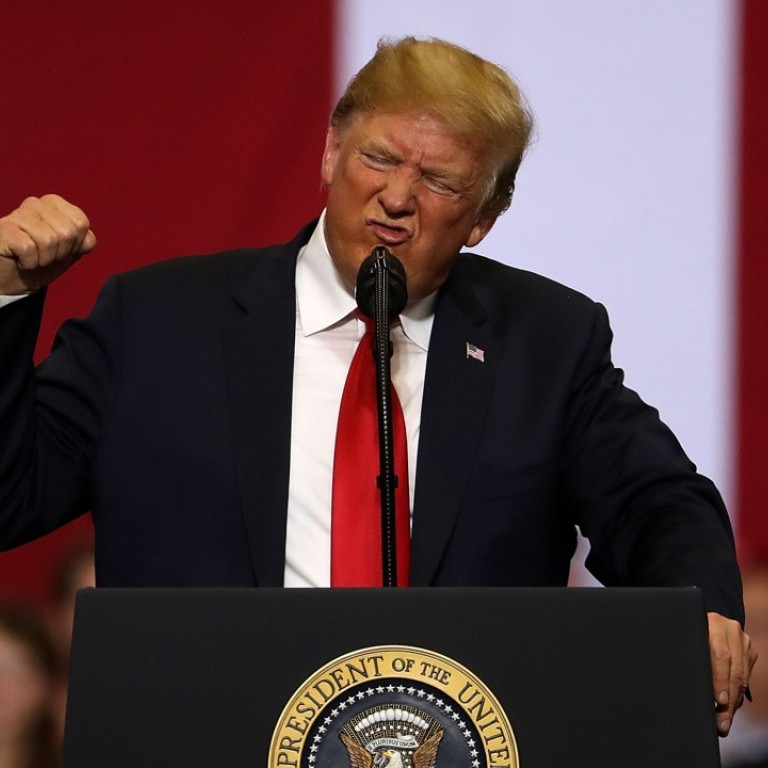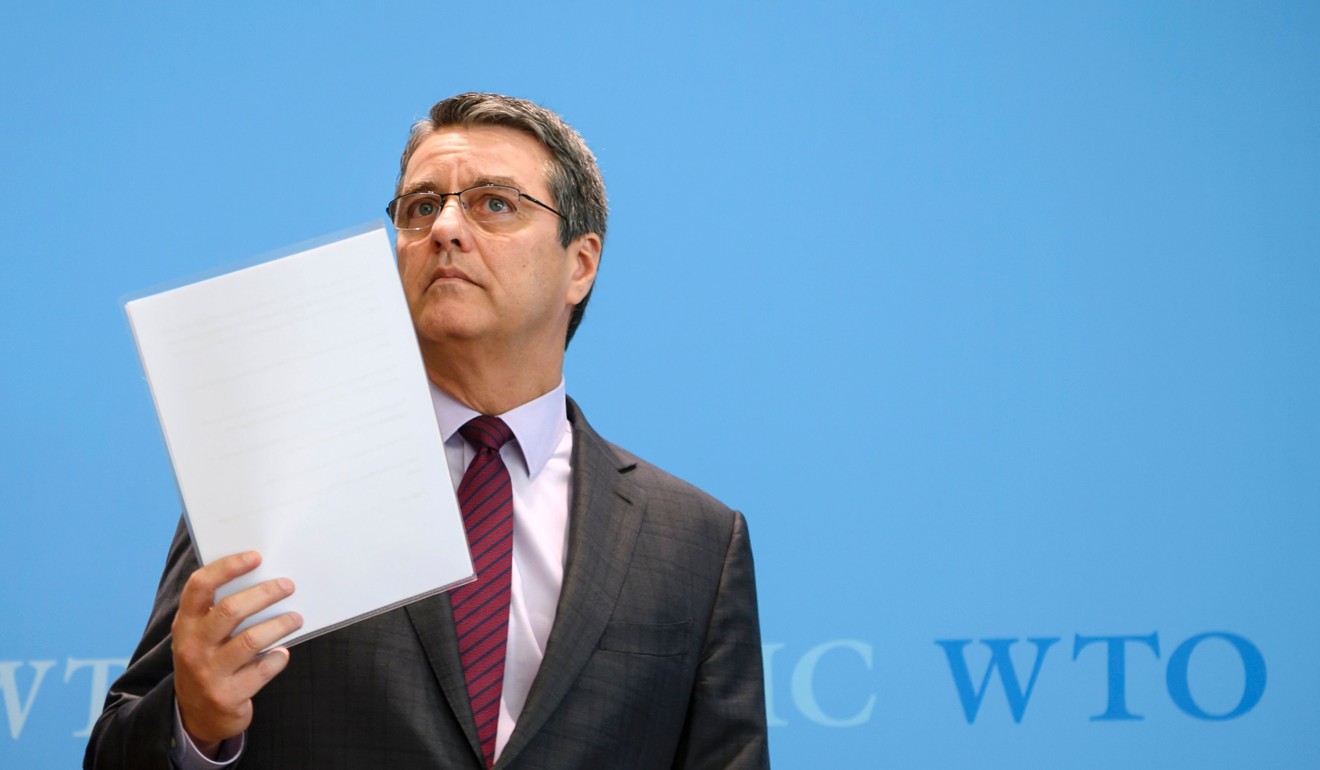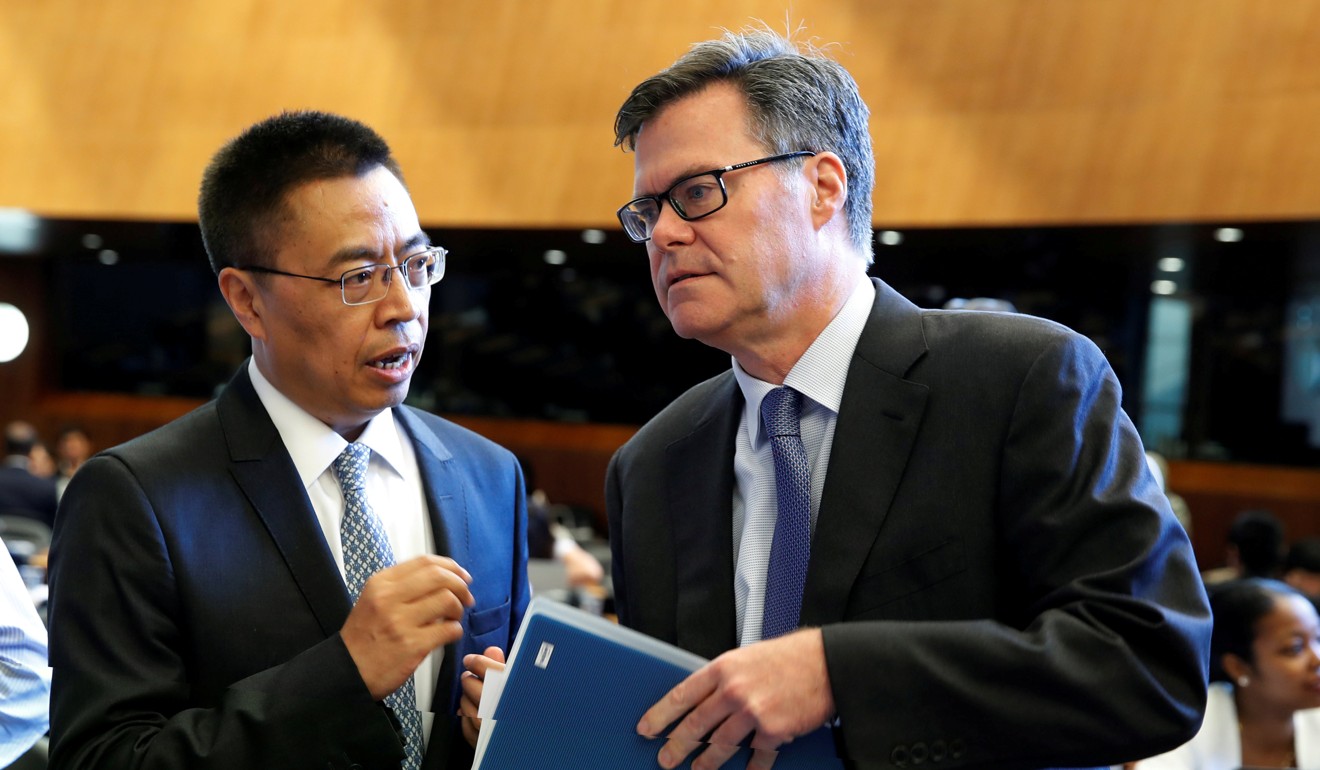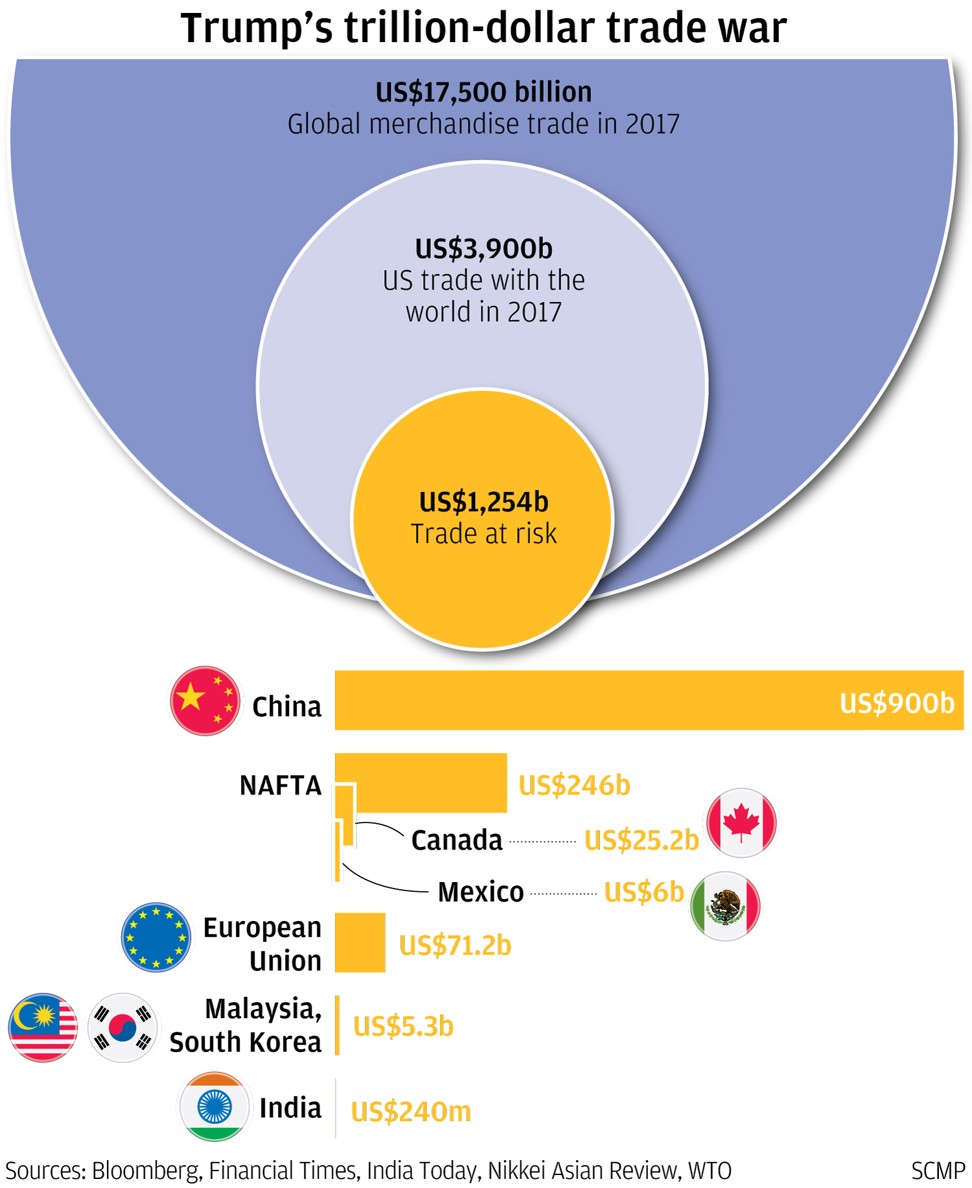
Why the US war on the WTO is a greater threat to global trade than its tariffs attack
David Dodwell says the US’ desire to control the trade dispute resolution process is apparent in its actions at the World Trade Organisation and its demands for changes to other multilateral trade agreements
There is a real danger that, by the end of next year, the ability of the WTO to settle trade disputes will have fully ground to a halt.
This might suit Trump and his ambition to “make America great again”, but it would suit almost no one else.
Since all attempts to move beyond the Uruguay round have since abjectly failed, cynics would say it is the WTO’s only accomplishment.
In the 21 years since the dispute settlement process began work, it has dealt with a total of more than 500 disputes, with many of these being resolved bilaterally or withdrawn, and more than 280 going to litigation.
As a matter of process, a large majority of these cases have ultimately gone to appeal, where findings by members of the seven-strong Appellate Body are final and binding on economies involved in disputes. Compliance has been very high – about 90 per cent – lending strength to WTO director-general Roberto Azevedo’s claim that the dispute settlement system “enjoys tremendous confidence among the membership, who value it as a fair, effective and efficient mechanism to solve trade problems”.
Sadly, one particular economy disagrees – the US. The country has been complaining about “overreach” by the Appellate Body’s judges for more than a decade, even though the US is by far the busiest user of the process, bringing more cases forward than the European Union and China combined.

At heart, the complaints are based on the US’ extreme reluctance to accept legal rulings that are not made through its own legal system – inevitable perhaps in a country in which lawyers loom large at every level.
Watch: Trump order US withdrawal from Trans-Pacific trade deal
Having failed to get other WTO members to agree to soften the Appellate Body’s powers, the US has since mid-2017 adopted a more insidious strategy: to cripple the dispute settlement appeals process simply by refusing to allow new members to be appointed.
WTO rules say there should be seven judges on the Appellate Body, each appointed for four years, with the ability to renew for a second four-year term. Each appeal must be overseen by three judges. As the US has blocked approval for new judges to be appointed when the terms of existing judges have expired, there are now three vacant seats.
The next judge whose term is set to expire – at the end of September – is the Mauritian judge, Shree Baboo Chekitan Servansing. So, from October 1, the body will have the bare minimum to continue functioning. But between now and December 2019, two other judges are due to step down – at which point the appeals process completely seizes up.
In short, the US is very successfully holding the WTO’s critically important dispute settlement process to ransom. As the Peterson institute team note: “There are few options for resolving the crisis unless WTO members commit to new approaches to updating and clarifying WTO rights and obligations.”

It may be that the US trade team has no intention of finding a solution and simply wants to strangle the WTO from the inside. But if there is sincere interest in finding a solution, the Peterson team believe it is possible. First, and very simply, everyone must agree to negotiate.
Second, and critically, the appellate judges could agree to refer issues of great legal uncertainty to relevant WTO committees for “authoritative interpretation”. This would restore the WTO’s original role as a “forum for permanent negotiation”.
Most of the drama around the current global trade crisis might be focused on tariffs, and the impact on jobs and consumer prices, but to cut to the heart of the threat to global trade, you need to plunge into the technical, unsexy world of trade lawyers working on the shores of Lake Geneva.
David Dodwell researches and writes about global, regional and Hong Kong challenges from a Hong Kong point of view


